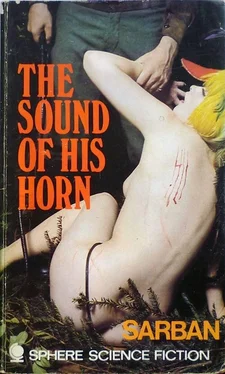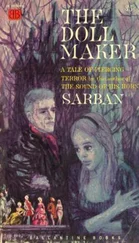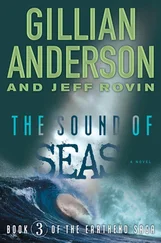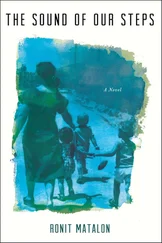Сарбан - The Sound of His Horn
Здесь есть возможность читать онлайн «Сарбан - The Sound of His Horn» весь текст электронной книги совершенно бесплатно (целиком полную версию без сокращений). В некоторых случаях можно слушать аудио, скачать через торрент в формате fb2 и присутствует краткое содержание. Жанр: Альтернативная история, на английском языке. Описание произведения, (предисловие) а так же отзывы посетителей доступны на портале библиотеки ЛибКат.
- Название:The Sound of His Horn
- Автор:
- Жанр:
- Год:неизвестен
- ISBN:нет данных
- Рейтинг книги:4 / 5. Голосов: 1
-
Избранное:Добавить в избранное
- Отзывы:
-
Ваша оценка:
- 80
- 1
- 2
- 3
- 4
- 5
The Sound of His Horn: краткое содержание, описание и аннотация
Предлагаем к чтению аннотацию, описание, краткое содержание или предисловие (зависит от того, что написал сам автор книги «The Sound of His Horn»). Если вы не нашли необходимую информацию о книге — напишите в комментариях, мы постараемся отыскать её.
The Sound of His Horn — читать онлайн бесплатно полную книгу (весь текст) целиком
Ниже представлен текст книги, разбитый по страницам. Система сохранения места последней прочитанной страницы, позволяет с удобством читать онлайн бесплатно книгу «The Sound of His Horn», без необходимости каждый раз заново искать на чём Вы остановились. Поставьте закладку, и сможете в любой момент перейти на страницу, на которой закончили чтение.
Интервал:
Закладка:
Jim and I said goodbye hurriedly in the dark of the trees while the hullabaloo of the sham fight was still going on inside the camp. The dogs were barking like fury and some of the goons were shouting, but no one turned a searchlight on our side of the wire. Phase Two of the operation seemed to have succeeded perfectly.
I had memorised my map and had my course very clear in my mind. The first part of the first night's journey would be the worst: it meant steering due east through the pine-forest, off the tracks, for a distance that I estimated at three hours' walking, until I dropped into a by-road, which I should follow for four or five miles, going roughly north-east, then swing east again to avoid a village, and go by small lanes on a zig-zag course across a wide plain, very thinly inhabited, to another belt of woods, which, I reckoned, I should reach by the first light There I intended to hide and rest The following night I should continue through alternate forest and clearing until about dawn I should come to the railway just south of Daemmerstadt.
I had no illusions about the difficulty of pushing through forest at night, and I had tried to get in as much road-travelling as I thought was safe. I felt I might risk an encounter with peasants or the civil police on the small country roads, for the news of our escape would possibly be late in reaching them and I was cheerfully confident of being able to give a passable imitation of a foreign first mate who'd been on the booze and missed his train, or got out at the wrong station and was setting off to find the right one. I've met a number of such in my time.
There's something to be said for pine-forests. They're infernally dark, but they're much freer of undergrowth than broad-leaved woods. It was not at all easy going on that first leg of my hike and I began to feel that I had underestimated the effect two years of prison fare had had on my strength, but, though it took me nearer five hours than three to reach my road, I did reach it, and, what surprises me more when I look back on it, pretty well at the exact spot where I had reckoned I should. True, I had my compass, but I think I must have had more than my due of what they used to say was the most useful of the Mariner's Aids to Navigation –a bit of damn good luck.
It was a relief to be on the road and to have something to check my position by. I rested a little and ate something, but I dare not take it easy if I was to get into the forest again by daylight. Well, you can imagine the ache of that night hike for yourself: it was worse than any of the trips we ever did together in the old days. Every time I saw a car's headlights I had to creep into an orchard or crouch in the ditch till it was past, and those changes from straight rhythmic slogging became more and more of an agony as the night went on. Once or twice, when I forced myself to get up out of the ditch again, I thought I should never get my legs to work or beat down the burning pain of my blisters again. I can tell you, by the time the sky was turning grey I didn't much care how soon they recaptured me. All I really cared about was stopping walking and getting a drink.
That was my second miscalculation. I had not brought a bottle of water with me so as not to have too much to carry; I had reckoned that in Europe one would never be far from some moderately potable water. It's not so: at least, it seems not to be so in Eastern Europe. I was dodging the villages, of course, and in that sandy region I suppose you don't get brooks and ponds, only wells, and those, naturally, are where the farms are.
I reached my further belt of forest without any very serious alarm, though the sun was well up when I got there. I could see a small farm not far away, with a very tempting-looking cattle-trough in a paddock, but I daren't try to sneak down and have a drink: the day was too far advanced, and even though I could see no one about, there was sure to have been a dog. The best I could do was to limp up into the shade of the pine-trees and crawl about gathering and chewing blades of the pale grass that grew here and there under them.
I rested all that day in the coolest place I could find; I was too parched and sick with fatigue to eat, but I slept–in the uneasy way you do when you are overstrained. The blisters and the aching muscles and the drought of your throat seem to stimulate your brain to activity, while the will, or whatever it is that selects and disciplines thought, is too weary to assert itself. You know the feeling–as if your mind were a cinema projector that has suddenly become animate, taken charge of the proceedings, kicked the operator downstairs and settled down to churn out miles and miles of film for its own devilish amusement, accelerating all the time. I can't remember any of the details of the near-nightmares I had that day in the fringes of that pine-forest, but I can remember the burden of them on my mind, the awful number and speed of them.
Well, perhaps it was that that began it–the great physical strain and the acute anxiety underlying it all. It had not occurred to me that I shouldn't be strong enough. Perhaps I should have stuck with Jim Long.
When it was dusk I pulled myself together and set off again. But this night it was very different. I had lost confidence in my physical ability to carry the thing through, and that was a great shock to me. It was the first time in my life that my body had refused to do something I demanded of it, and the revolt demoralised me. Instead of studying to economise my strength I perversely over-drove myself. And it's no wonder, I suppose, if I got off my course. I had to steer due north, but time and again I came to deep gulleys and ravines that made me wander far off to one side or the other, looking for easy crossing-places; sometimes I saw a light in a clearing and still had determination and courage enough to make a painful detour instead of groping straight towards it and giving myself up.
My memory became confused; the clearings were the only things I had to check my course and progress by and I could not remember how many I had passed or identify them on the map. I used up all my matches trying to study the thing, but I was in such a state of exhaustion and distress that I could scarcely read, let alone reason.
At length, I came into a sandy track on which the moonlight fell clear and strong. It ran somewhat east of north, but the smooth straight way and the light, after the roughness of the dark forest, were such a temptation to me that I could not resist following it. There were wagon-ruts and hoofmarks in the sand. I supposed the track must lead to a farm, but I was beyond caring. I trudged straight along it.
Little by little, I remember, my mind became calmer, and no doubt because of the easier going, and the regular rhythm that was possible, I fell into a kind of automatic action. I began the old, childish trick of repeating something to myself to keep time with my footfalls: meaningless phrases at first, and then, verses. You know the ballad of the Nut Brown Maid? Four lines of that went thump, thump, thump, through my brain, like the dull beat of an engine carrying me on God knows how many miles:
«For an Outlaw this is the law,
That men him take and bind,
And hanged be without pitee,
To waver with the wind.»
It's still a wonder to me that under the mechanical, syllabic pounding I made of the verses I did think of the sense sometimes, and I felt a queer, new pathos in them. That coupling of outlawry and pity: I had never thought of that before. The man who wrote that ballad knew that outlaws weren't romantic heroes, all they wanted was pity. Ah, the great cruelty of outlawry in shutting the gates of common men's pity against you.
Had that narrow track led me to a farm, I think I would have leant with my head upon the door and begged for the peasants' pity; but it led to no human habitation.
Читать дальшеИнтервал:
Закладка:
Похожие книги на «The Sound of His Horn»
Представляем Вашему вниманию похожие книги на «The Sound of His Horn» списком для выбора. Мы отобрали схожую по названию и смыслу литературу в надежде предоставить читателям больше вариантов отыскать новые, интересные, ещё непрочитанные произведения.
Обсуждение, отзывы о книге «The Sound of His Horn» и просто собственные мнения читателей. Оставьте ваши комментарии, напишите, что Вы думаете о произведении, его смысле или главных героях. Укажите что конкретно понравилось, а что нет, и почему Вы так считаете.












